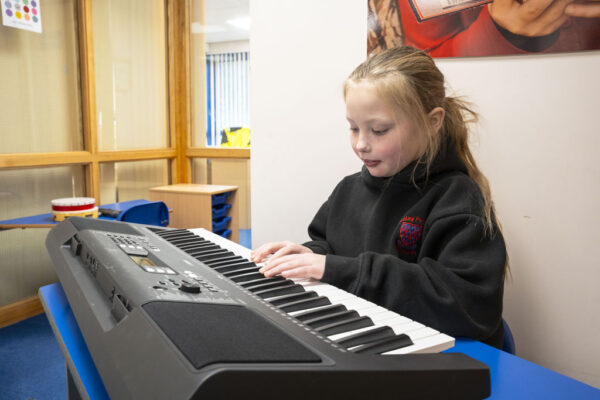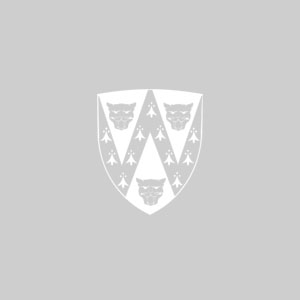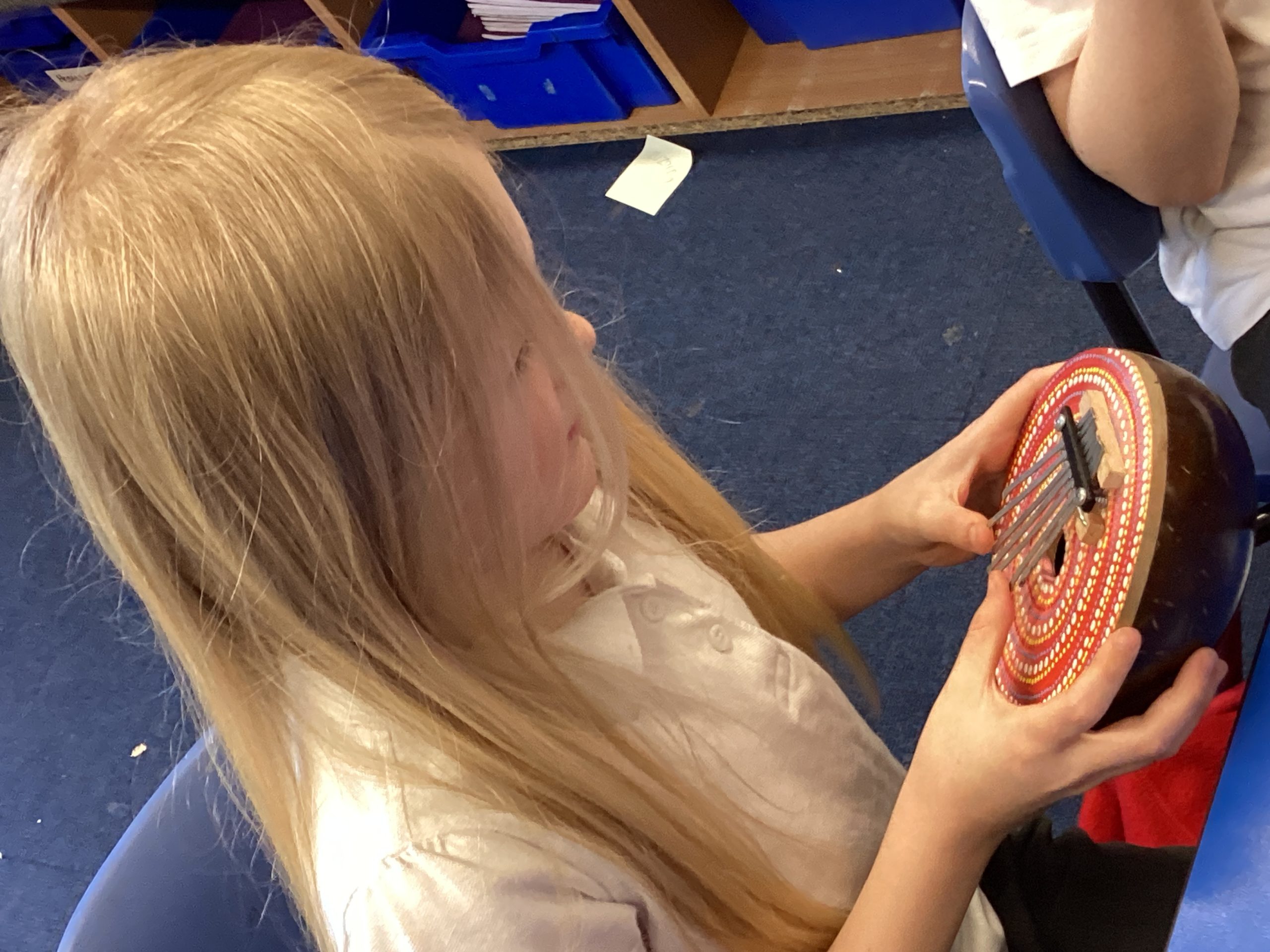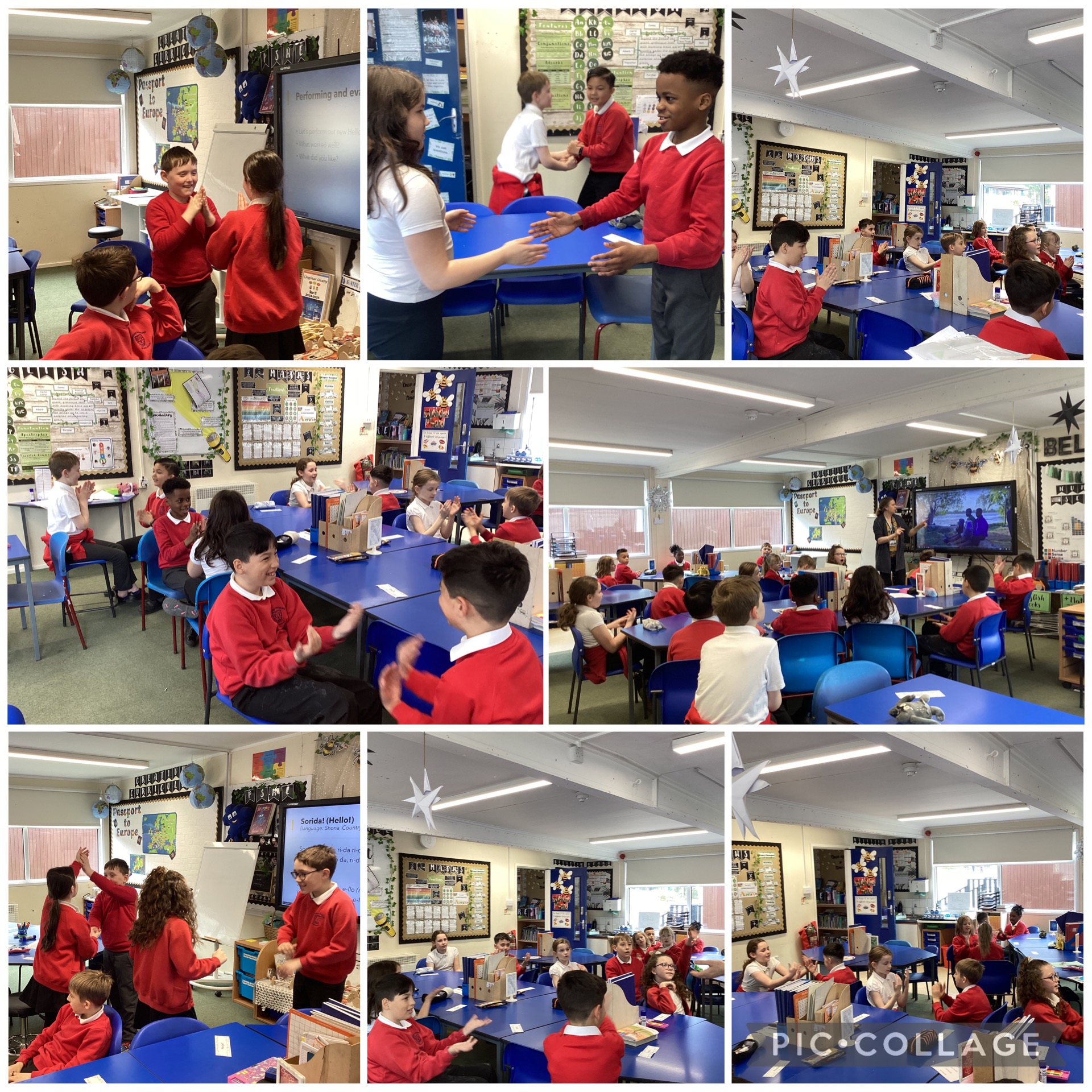 Intention
Intention
At Randlay Primary School the intention is that children gain a firm understanding of what music is through listening, singing, playing, evaluating, analysing, and composing across a wide variety of historical periods, styles, traditions, and musical genres. Our objective at Randlay is to develop a curiosity for the subject, as well as an understanding of the importance of all types of music. They will also gain a respect for the role that music plays in a person’s life. We are committed to ensuring children understand the value and importance of music in the wider community, and are able to use their musical skills, knowledge, and experiences to involve themselves in music, in a variety of different contexts.
Implementation
At Randlay Primary School our pupils will learn that music is a universal language that embodies one of the highest forms of creativity. The music curriculum begins as soon as our children start school with songs and listening games in Nursery and is developed into a subject which is taught discretely through the Kapow Music Scheme from the Reception year and throughout key stage one and two, it is enriched with further classroom activities which make links to our creative curriculum themes where appropriate.
Children learn best when learning activities are well planned, ensuring progress in the short, medium and long term. The ‘Kapow Music School’ scheme of work, supports all of the requirements of the National Curriculum and gives children access to a wide range of musical concepts and experiences. The ‘Kapow Musical School’ Scheme provides teachers with week-by-week lesson support for each year group in the school. It is ideal for specialist and non- specialist teachers and provides lesson plans, assessment, clear progression, and engaging and exciting whiteboard resources to support every lesson.
The Scheme supports all the requirements of the new National Curriculum and is absolutely in line with published OFSTED guidance.
Kapow takes a holistic approach and follows a cyclical approach to lesson planning, which allows children to build on prior learning so that they know more and remember more. It is taught as outlined in our long term planning document. All musical learning in this scheme is built around the Interrelated Dimensions of Music: pulse, rhythm, pitch, tempo, dynamics, timbre, texture, structure and notation. These dimensions are at the centre of all the learning; they are musical building blocks. The learning within this scheme is based on: Performing, Listening, Composing and The History of Music.
The elements of music are taught in the discrete lessons so that children are able to use some of the language of music to dissect it, and understand how it is made, played, appreciated and analysed. This is embedded during weekly singing assemblies, whole school assemblies and various performances.
Children have regular opportunities to play tuned instruments, and in doing so understand the different principle of each method of creating notes, as well as how to read basic music notation. They also learn how to compose, focusing on different dimensions of music, which in turn feeds their understanding when listening, playing, or analysing music. Composing or performing using body percussion and vocal sounds is also part of the curriculum, which develops the understanding of musical elements without the added complexity of an instrument.
The learning of instruments is encouraged and is taught by peripatetic teachers from Telford and Wrekin Music. We endeavour for all children from disadvantaged backgrounds to learn an instrument. Lessons are currently available for guitar, keyboard, piano, drums and violin.
EYFS
Music plays an important part in a child’s early development. The Early Years Foundation Stage Curriculum encompasses all areas of creative development, particularly in the area of Expressive Arts and Design.
The early learning goals for music are to…
- Listen with increased attention to sounds.
- Respond to what they have heard, expressing their thoughts and feelings.
- Remember and sing entire songs.
- Sing the pitch of a tone sung by another person (‘pitch match’).
- Sing the melodic shape (moving melody, such as up and down, down and up) of familiar songs.
- Create their own songs, or improvise a song around one they know.
- Play instruments with increasing control to express their feelings and ideas.
At Randlay Primary School, this is achieved through weekly music lessons following the KAPOW scheme. We also engage in weekly singing assemblies with Key Stage 1.
Key stage 1
Pupils should be taught to:
• use their voices expressively and creatively by singing songs and speaking chants and rhymes
• play tuned and untuned instruments musically
• listen with concentration and understanding to a range of high-quality live and recorded music
• experiment with, create, select and combine sounds using the inter-related dimensions of music.
This is again achieved through the use of regular teaching following the KAPOW music scheme and singing assemblies with EYFS.
Key stage 2
Pupils should be taught to sing and play musically with increasing confidence and control. They should develop an understanding of musical composition, organising and manipulating ideas within musical structures and reproducing sounds from aural memory. Pupils should be taught to:
- play and perform in solo and ensemble contexts, using their voices and playing musical instruments with increasing accuracy, fluency, control and expression
- improvise and compose music for a range of purposes using the inter-related dimensions of music
- listen with attention to detail and recall sounds with increasing aural memory
- use and understand staff and other musical notations
- appreciate and understand a wide range of high-quality live and recorded music drawn from different traditions and from great composers and musicians
- develop an understanding of the history of music.
This is again achieved through the use of regular teaching following the KAPOW music scheme and weekly singing assemblies. Year 3 and 4 children also access “The Global Musical Journeys” Project during the spring term, provided by the Telford Music Service.
How we Support SEND
We use adaptive teaching to enable all pupils to access the music curriculum and make progress. These can include:
- Adult and peer support
- Pre-teaching vocabulary
- Ear defenders
- Quiet spaces when instruments are being used
- Small group approaches
Impact
Whilst in school, children have access to a varied programme, which allows students to discover areas of excellence, as well as areas they might like to improve upon. The integral nature of music creates an enormously rich palette from which a student may access all of our Randlay core values: Respect, Aspiration, Excellence, Collaboration, Courage and Creativity. Music will also develop an understanding of culture and history, both in relation to students individually, as well as ethnicities from across the world. Children will be able to enjoy music, in as many ways- either as listener, creator or performer. They will be able to dissect music and comprehend its parts. They will know how to sing and feel a pulse. They have an understanding of how to further develop skills less known to them. Music assessment is ongoing to inform teachers with their planning, lesson activities and differentiation using a plan, do, teach, review procedure. Summative assessment is completed at the end of each unit using the tools available within the Kapow Scheme and are used to inform leaders of the improvements or skills that still need to be embedded. Music is monitored throughout all year groups using a variety of strategies such as folder/book scrutinies, lesson observations and pupil interviews.





